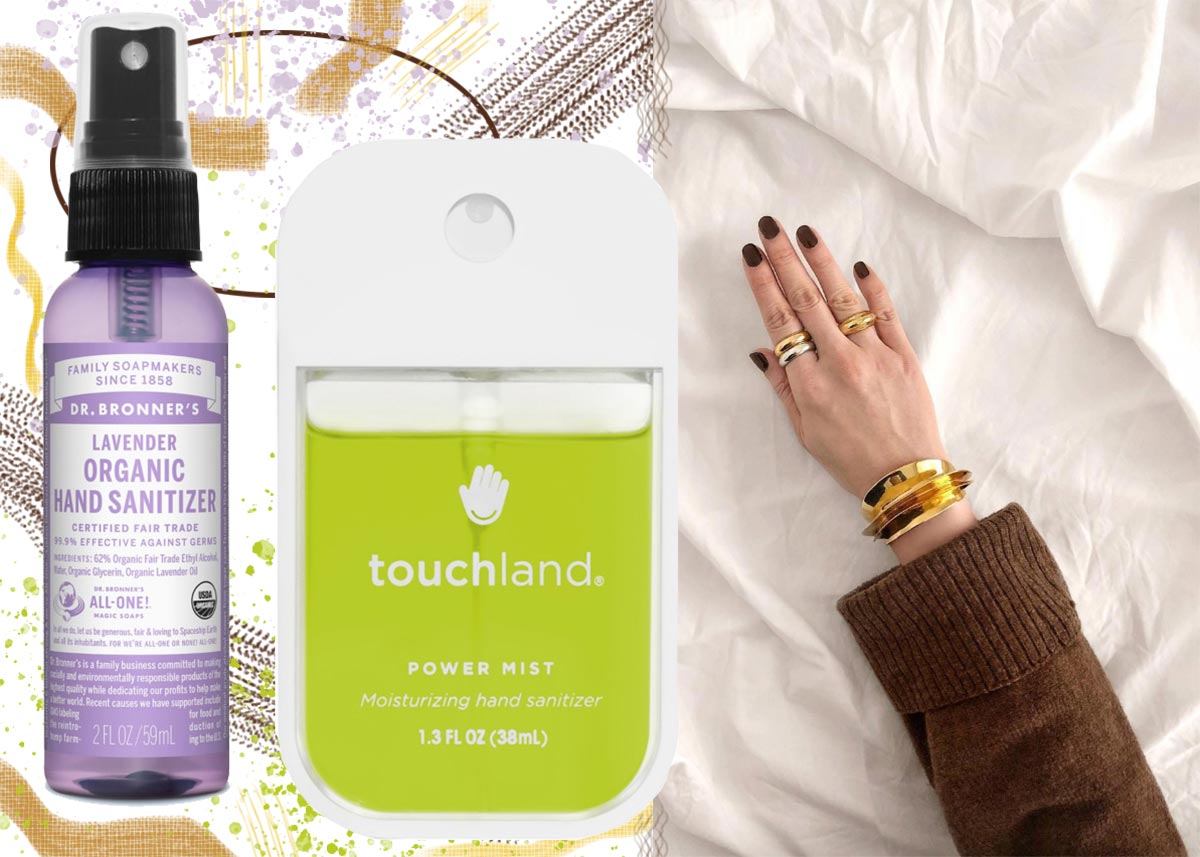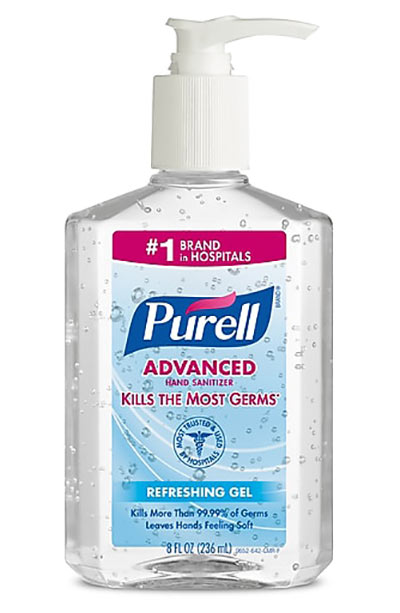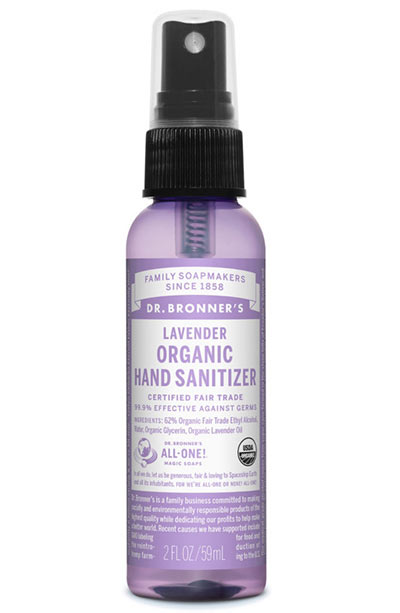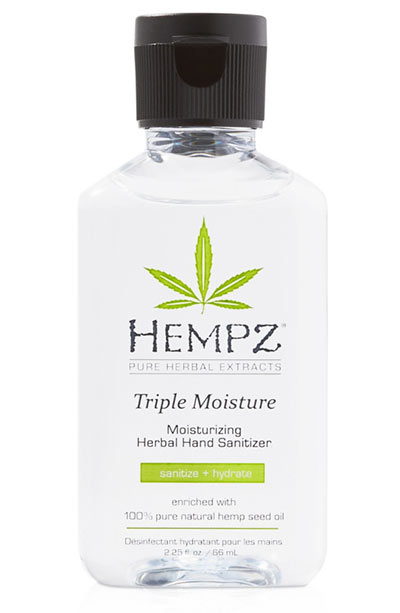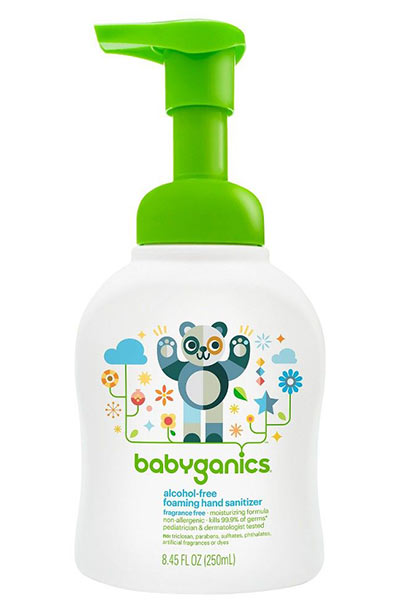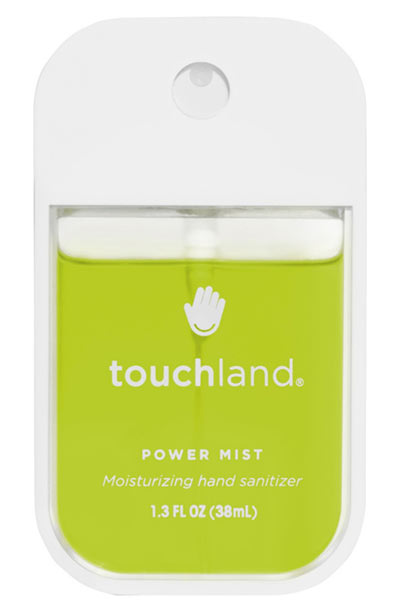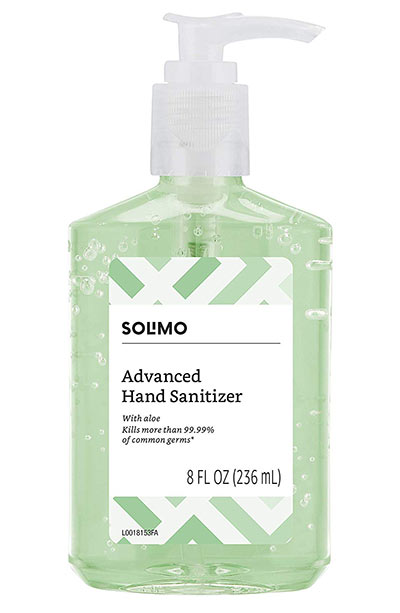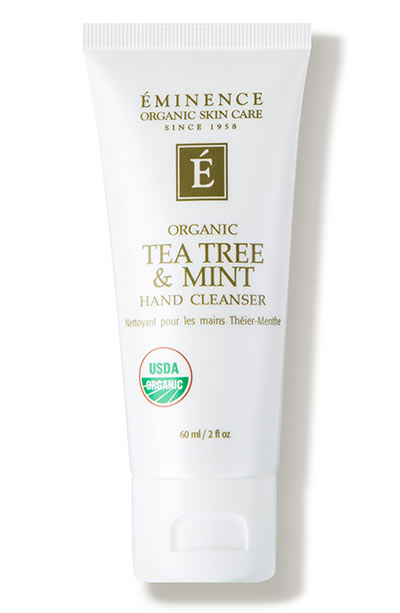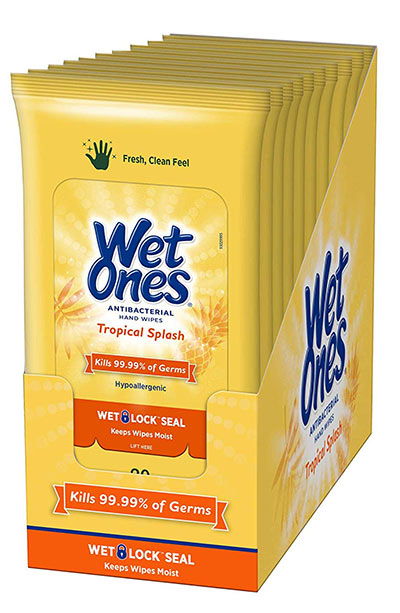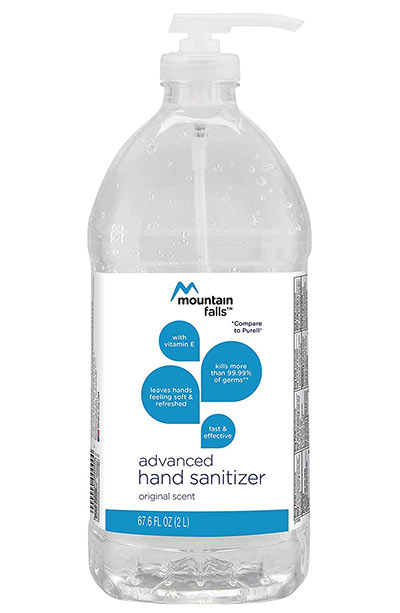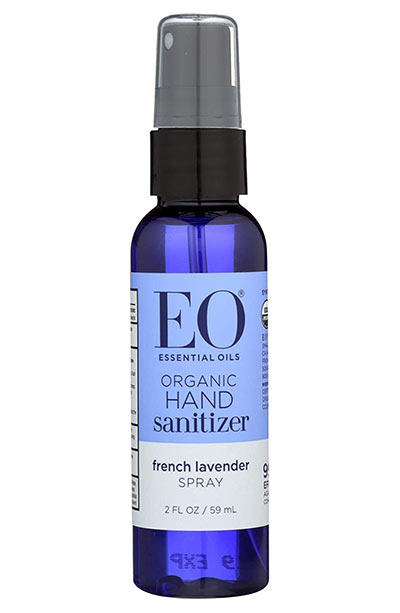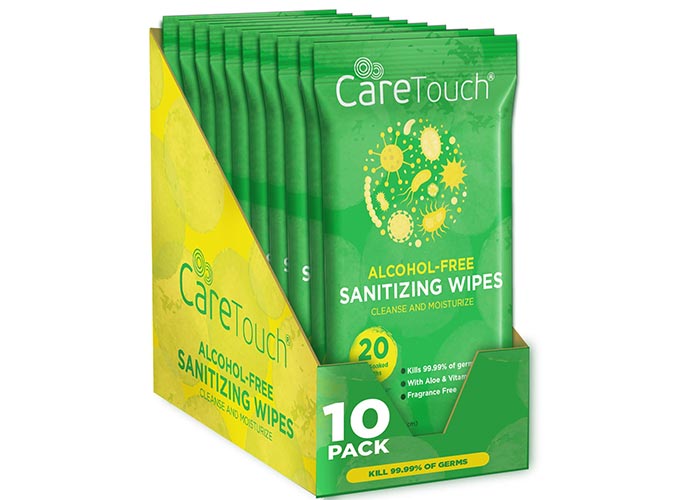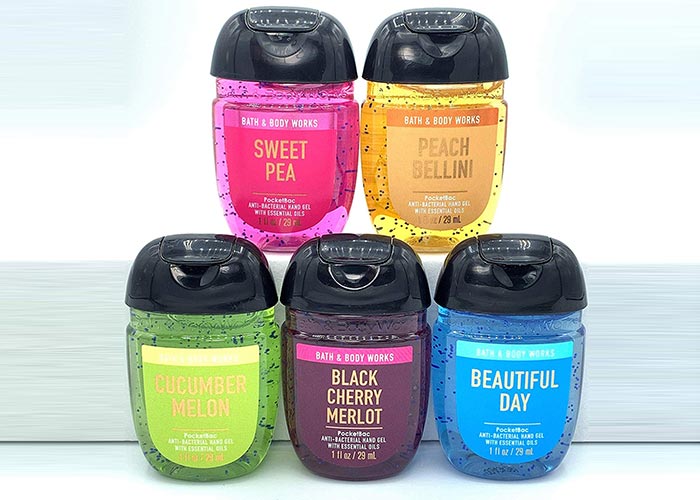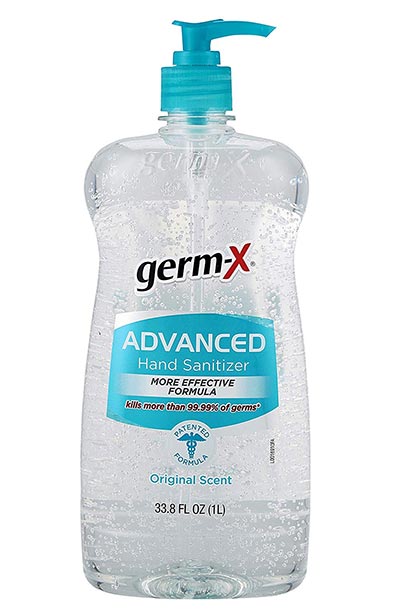- Hand sanitizer is a liquid or gel used to kill bacteria and viruses, preventing the spread of infections.
- The best hand sanitizer is one with at least 60% alcohol.
- You should still wash your hands to effectively clean the hands, while hand sanitizers and wet wipes are great for using on the go to get rid of 99% of germs.
Hand sanitizer has never been on my mind so much in the past, but with the recent coronavirus outbreak, I can’t help but notice everyone pulling those little plastic bottles out of their purse after getting off the metro or even just walking down the street. Even the CDC recommends using alcohol-based hand sanitizers as part of infection prevention best practices.
Once this global crisis settles down, a hand sanitizer will still protect you from all kinds of germs and diseases, especially while traveling without easy access to soap and running water.
That’s why we’ve selected the 13 best hand sanitizers you can buy right now, with a variety of packages and formulas to suit all preferences and skin needs. We also answer some burning questions, like how hand sanitizer works, what the different types of hand sanitizers are, and how to use them properly, so you can protect yourself and your family while still feeling fabulous!
In this article:
- Our Picks for the Best Hand Sanitizers
- What to Look for in the Best Hand Sanitizer for You?
- Hand Sanitizer FAQ
Best Hand Sanitizers Overview
- Best Overall: Purell Advanced Hand Sanitizer Refreshing Gel
- Best Formula: Dr. Bronner’s Lavender Organic Hand Sanitizer
- Best for Dry Skin: Hempz Triple Moisture Moisturizing Hand Sanitizer
- Best for Sensitive Skin: Babyganics Alcohol-Free Foaming Hand Sanitizer
- Best Smelling: Touchland Power Mist Aloe Vera
- Best Hydrating: Solimo Hand Sanitizer with Vitamin E and Aloe
- Best Organic: Eminence Organic Skin Care Tea Tree and Mint Hand Cleanser
- Best Wipes: Wet Ones Antibacterial Hand Wipes in Tropical Splash Scent
- Best Value: Mountain Falls Advanced Hand Sanitizer with Vitamin E
- Best for Travel: EO Hand Sanitizer Spray with Organic French Lavender
- Best Gentle Wipes: Care Touch Alcohol-Free Hand Sanitizer Wipes
- Best Gift Set: Bath & Body Works ‘Fresh Picks’ Pocketbac Bundle of 5 Antibacterial Hand Sanitizer Gels
- Best Budget: Germ-X Advanced Hand Sanitizer with Aloe in Pump Bottle
Our Picks for the Best Hand Sanitizers
These are our favorite hand sanitizers for every situation, so choose the one that will be best for you and your family.
What to Look for in the Best Hand Sanitizer for You?
There are a few different types of hand sanitizers available, so here are the details about each one to help you choose.
Gel Hand Sanitizers
Gel formulas are the most popular ones for hand sanitizers. They are cooling with a gel texture that doesn’t drip off of the hand, so it’s super simple to rub them in at home or while out and about. They are usually made with alcohol, a gelling agent, and a few moisture-binding ingredients that keep them from drying out the skin too much. Some gel hand sanitizers can dry down a little sticky, usually in correlation with how hydrating they are.
Liquid Hand Sanitizers
Liquid hand sanitizers are very simple and often come from natural or organic brands. The alcohol is mixed with a bit of water, aloe vera, other plant extracts, and maybe some fragrance and then placed in a spray bottle. You can just mist it over your hands to sanitize them.
Liquid hand sanitizers can sometimes take a touch longer to disappear compared to gel ones, but otherwise, we think they are just as convenient and effective. Issues can crop up if the hand sanitizer isn’t fitted with a good spray nozzle, in which case it might spray out too much or make a cloud of alcohol appear.
Hand Wipes
Hand sanitizing wet wipes are simply regular wipes saturated with an antibacterial solution, usually based on benzalkonium chloride. To use them, you just wipe your hands thoroughly with the wipes, and they can also work to sanitize surfaces. We love them the most for parents, who might find themselves needing the cleaning effect in addition to germ-killing, but they can also be useful in many other situations.
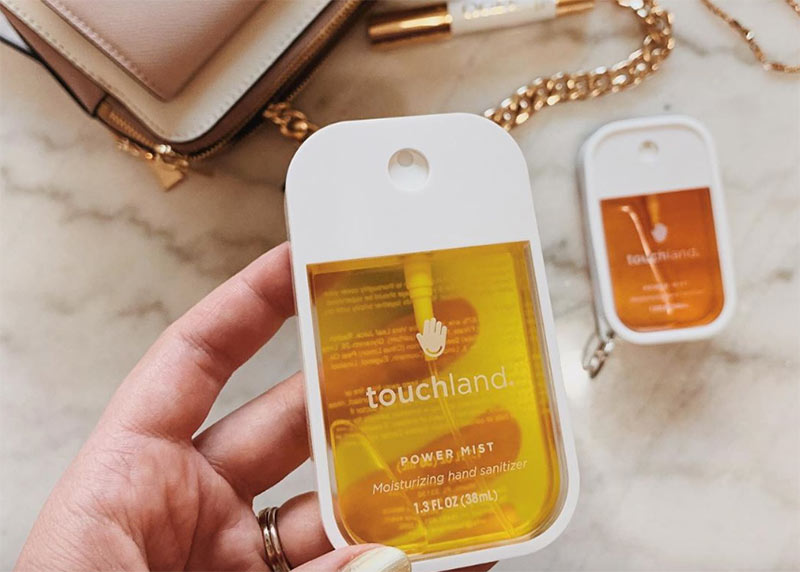
Hand Sanitizer FAQ
Here is every question about hand sanitizer answered for you to help you use it properly!
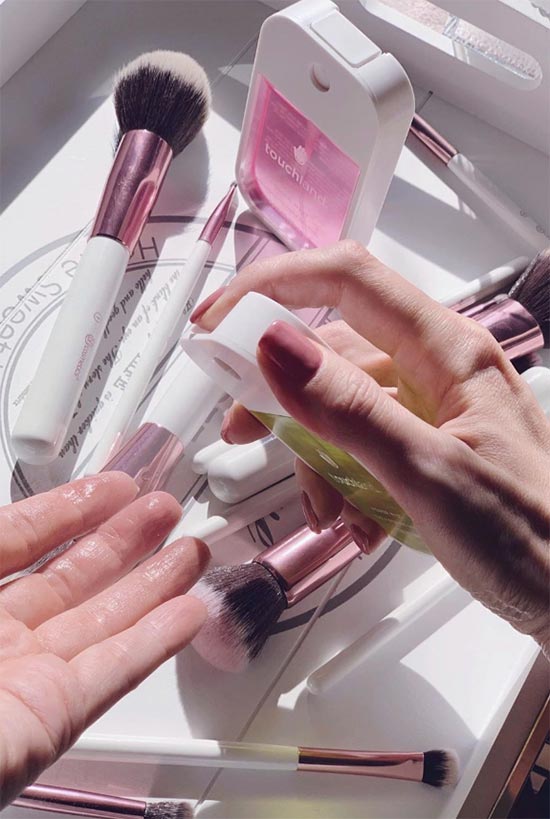
Hand sanitizer is a type of product that can kill bacteria and viruses and helps to prevent the spread of infections. Hand sanitizers can come in the form of gels, sprays, and even wet wipes. The great thing about hand sanitizer is that it evaporates all on its own very quickly, so it can be used in almost any situation.
Most hand sanitizers are made with alcohol, and as long as the solution contains over 60% of the potent stuff, it should work flawlessly to kill 99% of germs. Some hand sanitizers are made with benzalkonium chloride instead, which is as effective as alcohol at less than 1%. This makes benzalkonium chloride wipes less drying to the skin, although with regular use, they can cause skin irritation.
Hand sanitizers are regulated by the FDA as over-the-counter medications, which is good news because it means manufacturers have to prove that they work.
Hand sanitizer and handwashing work in two different ways to eliminate bacteria and viruses. Hand washing works by literally washing away all of the germs down the drain, and it’s extremely effective when done properly. Hand sanitizer is effective against over 99% of bacteria and viruses, but that still leaves a small percentage of germs that may stay on your skin.
The American Center for Disease Control recommends that in non-medical settings, people choose handwashing over using a hand sanitizer both because of the way soap and water work to remove bacteria and because hand sanitizers are not as effective at killing germs if the hands are actually dirty, while handwashing works against both the dirt and the germs.
However, in some circumstances, hand sanitizer is the clear winner. When you’re out and about, hand washing might not be possible, but you still want to protect yourself. Using hand sanitizer immediately after touching the bus handrail or shaking a stranger’s hand can go a long way towards keeping you from getting sick.
For those who work in environments where they regularly come into physical contact with other people and need to constantly disinfect their hands, hand sanitizers can once again be the preferred choice. This includes health care workers, teachers, early childhood educators, aestheticians, and more. This is because research has found that the convenience of hand sanitizer increases compliance since hand washing can take too long in these busy environments.
Finally, for those with dry or sensitive skin, constant hand washing can be too drying to the skin. While hand sanitizers can cause some dehydration, using them repeatedly is less harmful to the moisture barrier when compared to regular hand washing. You should still wash your hands several times a day, but hand sanitizer can save the skin the rest of the time.
If you don’t use hand sanitizer in the correct way, you risk weakening its efficacy. In other words, incorrect use can prevent it from killing all of the bacteria on your hands, so you can still get sick.
The most important detail in using hand sanitizer is making sure to really get it all over the hands. The amount necessary will vary from hand sanitizer to hand sanitizer, so always read the packaging, but you want to make sure to rub it into the hands in such a way so that it covers every inch of the skin, including in between the fingers, the back of the hand, and under the nails.
Once the hands are thoroughly covered, continue to gently rub the hand sanitizer into your skin until it partially sinks into the skin and partially evaporates, and the hands are dry. Don’t wipe it off of your hand – it’s important to let it disappear on its own, which usually takes less than a minute.
Remember that when the hands are visibly dirty, it’s better to wash the hands, and we also recommend relying on handwashing when the hands are covered in chemicals.
Other Hand Sanitizer Facts
We have a few other facts and tips you should know about hand sanitizers to make their use more effective and pleasant.
• Just like with other medications and cosmetics, pay attention to the expiry date of your hand sanitizer, which should be printed on the packaging. Hand sanitizer usually expires three years after it’s been manufactured, and once that time passes, you should purchase a new hand sanitizer.
• If consumed, hand sanitizer can lead to poisoning, so as with many other household products, you should keep hand sanitizer away from very small children or pets. This is especially important if you’ve opted for one of the more colorful or fragranced options on our list.
• Even the mildest hand sanitizers can dry out the skin a little, so keep hand cream on hand to moisturize your hands once your hand sanitizer has fully absorbed into your skin. However, don’t apply hand sanitizer immediately after moisturizing your hands since the cream may disrupt the ability of the sanitizer to kill germs.
• Always look for hand sanitizers that are properly labeled as OTC drugs. The FDA has clear guidelines for what the packaging must say, so you’ll know that a hand sanitizer is probably safe and effective if it follows them correctly.
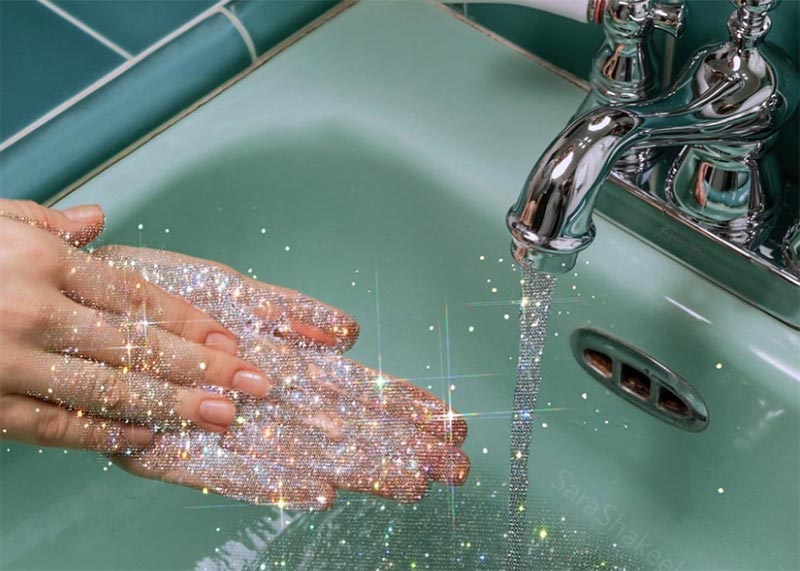
Photos via @phoebesoup , Instagram, Amazon

